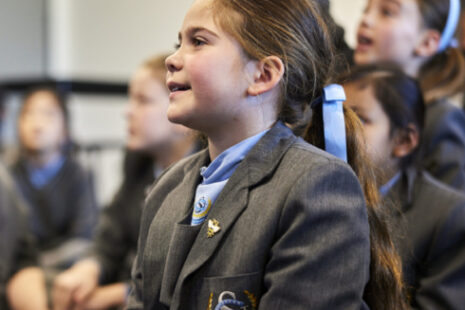Inclusive Education through Language

The learning of another language, different to that of the mother tongue, is an essential component of inclusive education, as it encourages intercultural understanding and tolerance, and ensures respect for different groups in society.
On 21 February 1952, a group of students were shot and killed by police for demonstrating in protest for Bangla to be recognised as one of the two national languages spoken in Pakistan. Since 2000, UNESCO (United Nations Educational, Scientific and Cultural Organisation) has proclaimed this day as International Mother Language Day and the day has been observed to promote linguistic and cultural diversity.
The bravery of the students and the brutality of the police was a drastic series of events that seem unfathomable and incomprehensible in today’s society. Why then, was the recognition of Bangla of such importance to the students and the police? What intrinsic powers are hidden within languages?
Languages, though seemingly mundane in their natural acquirement at an early developmental stage by most people, are still what separates humans fundamentally from every other animal. Though every animal has its own language of some kind, human language evolved, not only as a means of sharing information, but as a means of cooperation. [1] The truly unique feature of human language is its ability to transmit information about intangible entities – concepts such as empathy, appreciation and tolerance. Such ability gives human beings the unparalleled facility to cooperate with each other in numerous societies all over the world.
However, in our globalised culture, a common view is that remaining monolingual is acceptable. It is true that due to globalisation and technological advancements, the 7,000 languages currently spoken in the world are increasingly under threat. Only a few hundred are dignified with resolute application in the international education system and less than a hundred are utilised in the digital world. Yet, linguistic diversity allows for expansive educational development by broadening communication and thinking abilities and fostering a richer appreciation for different perspectives. Languages are the most powerful instrument to preserve and extend heritage and inspire solidarity based on understanding, tolerance and dialogue. It is fundamental to communication and, without languages, unique modes of thinking and expression may be lost and consequently, lessen cultural diversity.
Multilingual or bilingual approaches are promoted by UNESCO as important factors for inclusion and quality in education. The learning of another language, different to that of the mother tongue, is an essential component of inclusive education, as it encourages intercultural understanding and tolerance, and ensures respect for different groups in society. Such quality education which encompasses the development of the whole individual is the foundation for empowering people and their societies.
At St Catherine’s School, students have the opportunity to learn three additional languages aside from English, with some students electing to study two languages in their Senior years of schooling. This positive support of language education is an undeniable attestation of the irrefutable value of cultural and linguistic diversity and the esteem in which it is held by the School community.
[1] Harari, Y.N, Sapiens A Brief History of Humankind, Vintage, London, 2011, p.27





